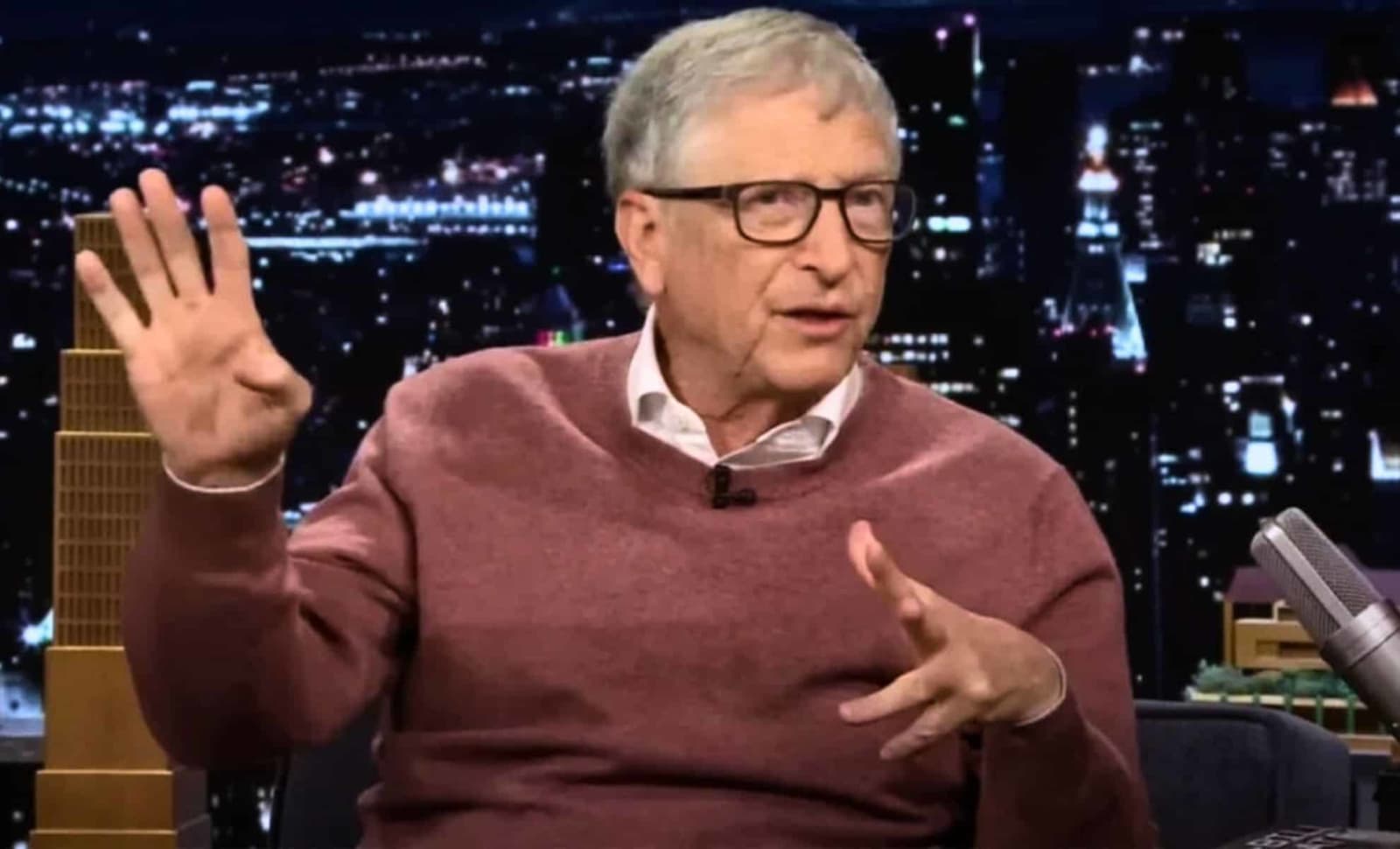No Doctors, No Chefs: Bill Gates Reveals the 3 Jobs AI Probably Won’t Replace (For Now)

As artificial intelligence becomes increasingly embedded in daily life, global leaders are re-evaluating the future of human work . The potential of AI to transform entire industries is no longer theoretical—it is unfolding rapidly across education , medicine , and manufacturing. During recent interviews and public appearances, Bill Gates , co-founder of Microsoft , shared his perspective on how this technological shift could impact employment worldwide.
Speaking on The Tonight Show with Jimmy Fallon , Gates addressed the scope and speed of AI’s development . In his words, “Over the next decade… humans won’t be needed for most things.” He called the emergence of AI-powered tools a “profound and even a little bit scary” change, pointing to a future defined by free intelligence — expert-level knowledge provided instantly and at scale through machine systems.
AI Transforming Medicine and Education
Gates believes AI will soon outperform humans in key sectors such as healthcare and education . “Great medical advice, great tutoring—those will become free, commonplace,” he said during his conversation with Fallon. This shift, he explained, could reduce dependency on highly skilled professionals, making expert-level services widely available.
In interviews with Harvard University’s Arthur Brooks , Gates emphasized that AI’s impact would extend beyond productivity. He sees potential for breakthroughs in climate solutions , public health , and personalized learning . According to Gates, “It’s happening very quickly, and there is no upper bound,” referring to AI’s rapid advancement and growing capabilities.
Three Roles AI Will Not Replace—Yet
Despite the broad disruption expected, Gates identifies three fields that remain difficult to automate fully: software programming , energy systems , and biological sciences . In each case, he attributes AI’s limitations to the complexity and nuance involved in human judgment and decision-making.
In the field of software development , Gates maintains that human oversight is essential. While AI can generate basic code, human programmers are needed to detect errors, create complex architectures, and innovate. He noted, “Even in 100 years, AI won’t replace the creative act of programming .” This aligns with a broader industry view that while AI can assist developers, it cannot replace the strategic and abstract thinking required for full system design.
Open the Youtube video
Energy and Biology: Human Expertise Remains Critical
Gates also points to the energy sector as an area too complex for full automation. From nuclear infrastructure to renewable grid integration , the work involves safety-sensitive operations that demand human supervision. The consequences of failure are high, and AI systems are not yet capable of managing such dynamic environments alone.
In biological sciences , Gates highlights the need for creativity in research. AI may be effective at data analysis or diagnostics, but it lacks the ability to conceptualize and drive scientific innovation . Moreover, as he told France Inter , limited funding in biology means human researchers are often required to make strategic decisions about which paths to pursue, something current AI systems are ill-equipped to handle.
Physical Labor and Creative Fields Under Pressure
While programmers, energy specialists, and biologists are likely to remain in demand, other roles face greater risk of automation. Gates suggests that even chefs and surgeons could be displaced in time, as robotic precision continues to improve. However, he acknowledges the social hesitance in accepting machines in roles involving personal care or craftsmanship.
In contrast, roles such as administrative assistants and graphic designers are already being affected by generative AI . Tools capable of producing documents, images, and data analysis at scale are changing the nature of these jobs. This trend was also reflected in findings from France Travail , which emphasized the lasting importance of critical thinking and problem-solving in adapting to this new landscape.
Navigating an Ai-Driven Economy
Although Gates is optimistic about the long-term benefits of AI, he remains realistic about the challenges. He has previously noted that today’s AI systems, while impressive, are still prone to errors and misinformation . But he sees entrepreneurship and adaptation as the best strategies moving forward. “I’m encouraging young people at Microsoft , OpenAI , wherever I find them: ‘Here’s the frontier,’” he said.
Looking ahead, Gates believes the world is heading toward a shorter workweek — possibly three days — as automation increases productivity. Yet, he warns that those outside the resilient professions may need to rethink their career plans. In his words, the smartest move now is to “learn to work with AI instead of fearing it.”
Enjoyed this article? Subscribe to our free newsletter for engaging stories, exclusive content, and the latest news.
For more news like this, visit .
Comments
Post a Comment